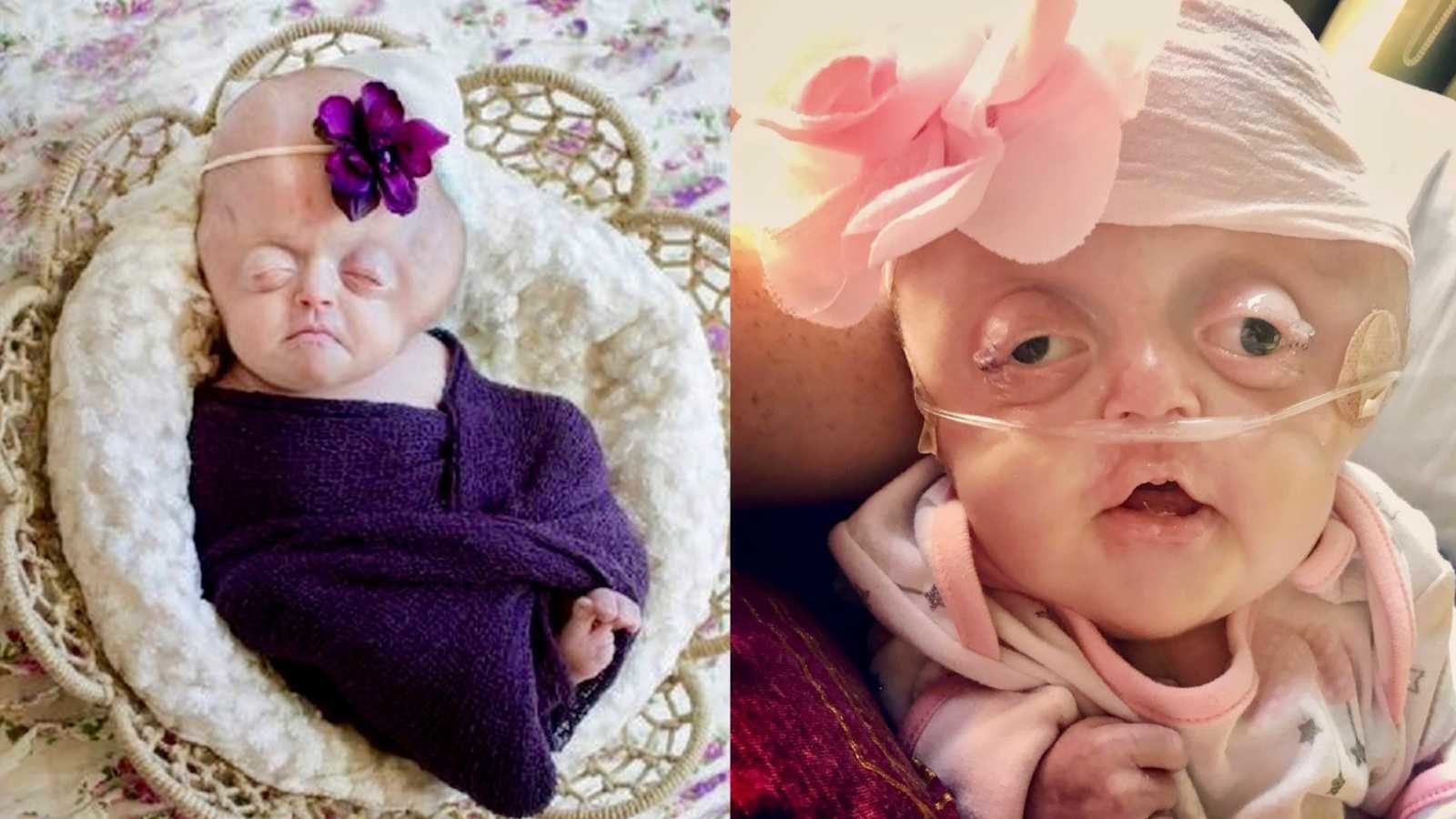
Emmy is a very wanted baby.
We tried for months to get pregnant. We visited doctors and did testing. We were at the point of discussing meds and procedures when we got that beautiful positive test.
I did all of the "right" things: ate healthy foods (and a healthy dose of Taco Bell), exercised, took my vitamins.
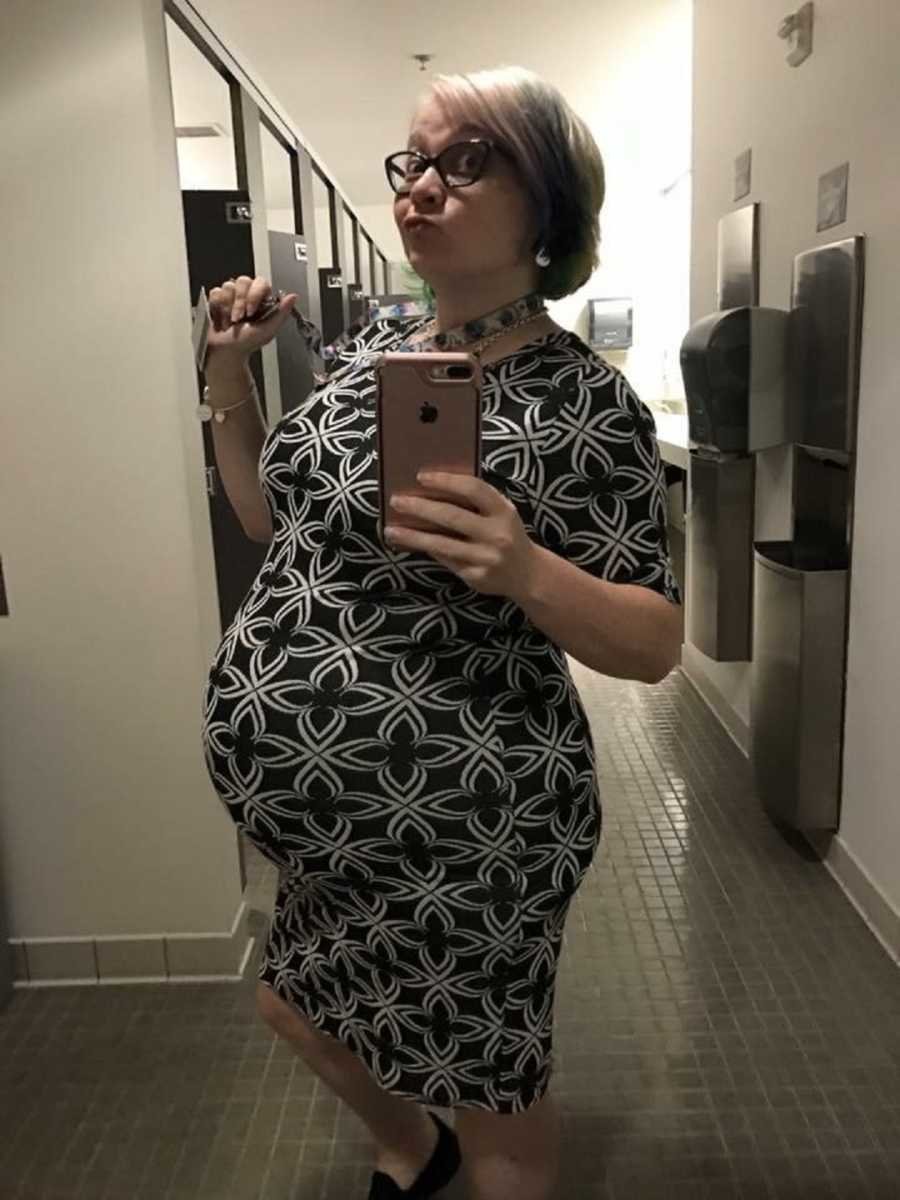
I was determined to have a much more pleasant, gestational diabetes-free pregnancy this time around.
We did the genetic testing at 10 weeks at the urging of the doctor. I waited anxiously for the results — I was nearing 40 so my risks were higher. We waited on telling our then 5-year-old son until after the results came back.
When the results came back as completely "normal," we both breathed a sigh of relief. We also learned with that testing that we were going to have a daughter. Baron, her big brother, was elated.
At 20 weeks, we went in for the routine anatomy scan with no concerns whatsoever. We held hands and laughed when we saw her on the screen. We couldn’t wait for pictures to show her grandparents.
I knew immediately something was wrong when the tech kept going over and over her head in complete silence.
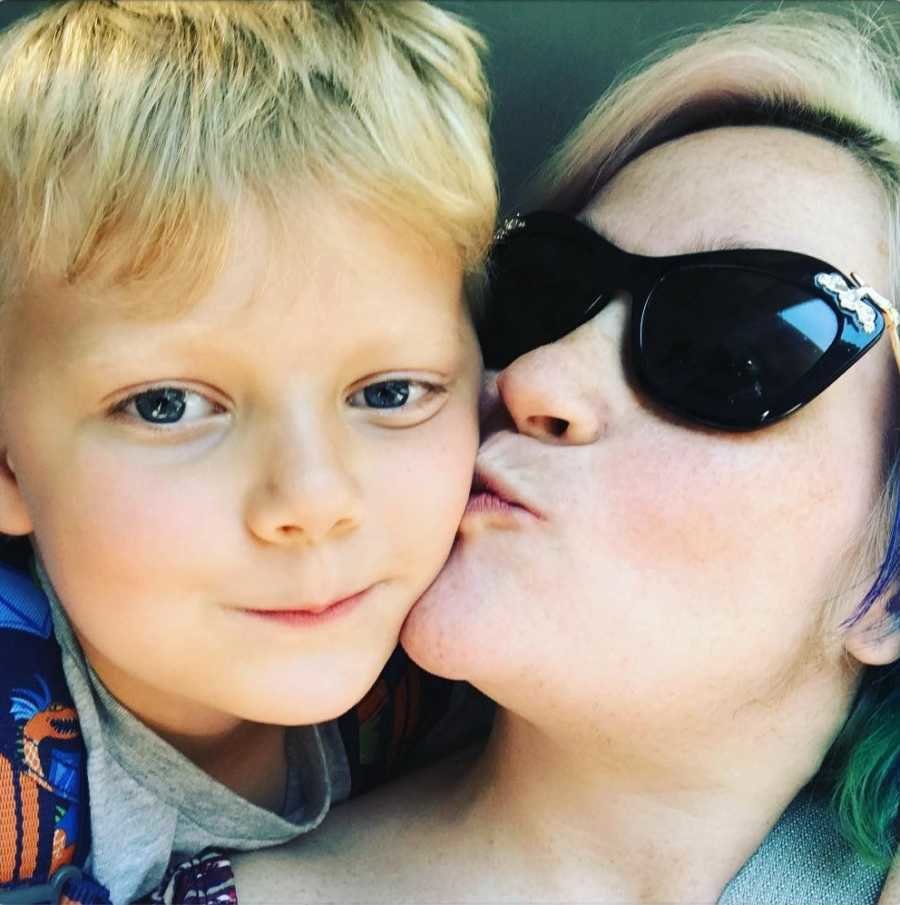
I am not sure she was even breathing — it was that quiet. After what felt like forever, she left the room and said she needed to speak with the radiologist.
When she left, I cried. I told Robert that something was wrong and they weren’t telling us. When she finally came back after what felt like an eternity, all she said was that the doctor was waiting for us upstairs.
I could hardly get on my feet.
We went upstairs and the doctors told us there was some sort of "anomaly" with her skull. They wanted us to go to a maternal fetal medicine doctor the next day to get a better scan with better equipment. We did exactly that.
A doctor I had never met in my life told us that our baby likely had a type of dwarfism that was incompatible with life and went over our termination options in great detail.
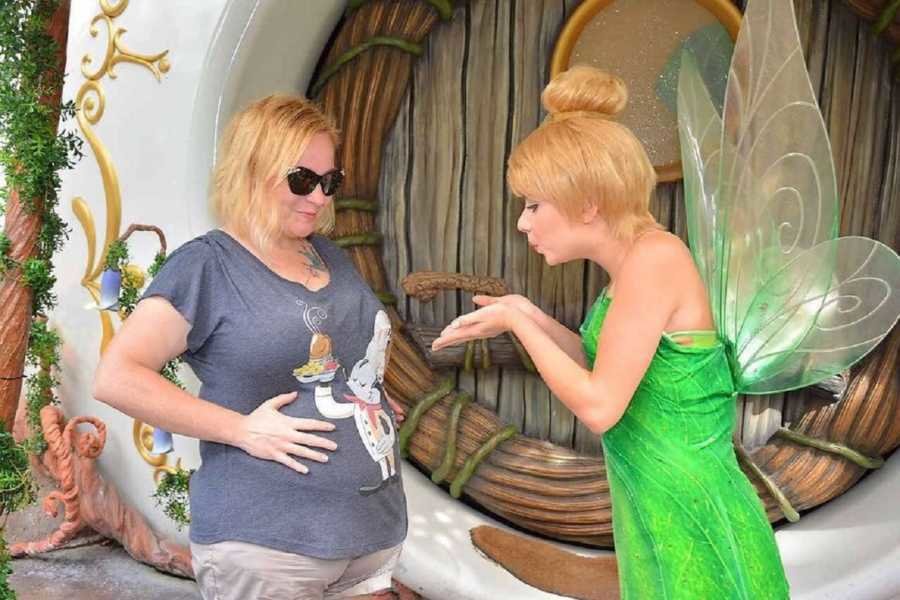
She told us we had to hurry because our time for legal abortion was coming to an end and I would have to fly out of state if I waited too long.
My head was spinning and I told her I wanted another opinion before making any decisions about the future. Since Emmy’s skull was showing signs of fusion, she recommended we visit the craniofacial department at Seattle Children’s. We made the appointment for the next week and in the meantime, we had a trip planned to the happiest place on Earth with her brother to celebrate him becoming a big brother. It was the most heart-wrenching week of my life.
We had all of our files sent to the craniofacial team and met with one of the doctors there. He took one look at her scans and said that the initial diagnosis was completely incorrect and that he was 98 percent sure she’d have Pfeiffer syndrome. He told us the good and the bad, but assured us that she could live and have a very good life. She would need surgeries — probably many — but she could be a happy child with a fairly normal life.
We fired the other doctor immediately.
Pfeiffer syndrome is a genetic syndrome that can happen to any fetus.
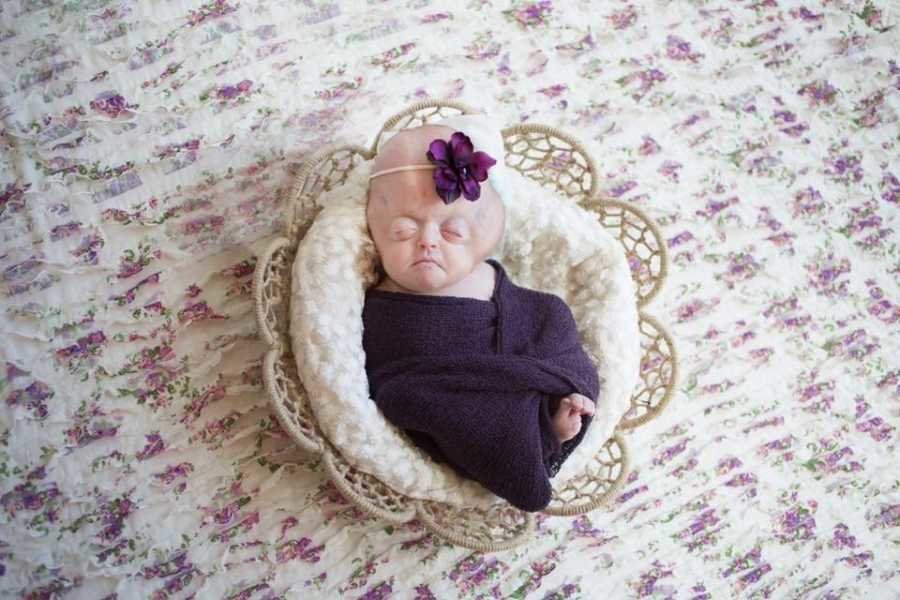
Nothing we did or didn’t do caused Emmy to have this condition. There are many concerns with Pfeiffer syndrome but the main issues revolve around the premature fusion of the skull. The fusion causes the sutures to be closed too early, and in Emmy’s case, all of the typical skull openings were closed. It causes shallow orbital sockets which gives her proptosis (or the bulging of her eyeballs). The craniosynostosis also causes her midface (nose and upper jaw) to be squished which, in turn, causes a narrowing of her airway.
The next 18 weeks went by, full of ultrasounds and clinic visits. We prepared a dream team of doctors to be ready for when she was born to help support her airway. When the big day came, we were both excited and terrified.
Even though we had prepared ourselves as best as we could, it was still a shock to see Emmy in the flesh.
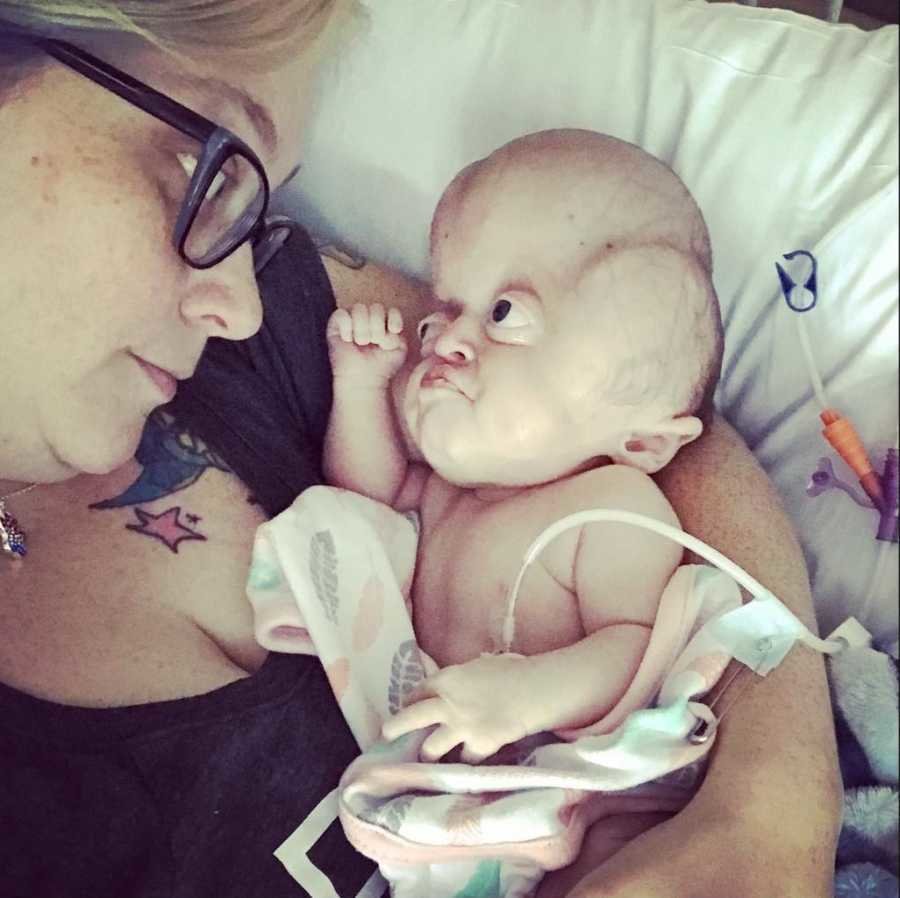
Her eyes were huge, her skull was misshapen, and they intubated her immediately before I even got to look at her. She also has the most beautiful blue eyes and dark hair.
She had this bump on the side of her head where the cerebral spinal fluid had collected because it wasn’t draining normally, and her hydrocephalus had become severe. My honest thought when I first saw her was that it wasn’t supposed to be this bad, but at least her eyes could close. Our doctor didn’t say anything, she was focused solely on me and stitching me up after my C-section. The nurses were almost silent. Emmy was silent. It was eerie and terrifying. They rushed her next door to the OR. We scheduled with a neonatal specialist and ENT to be on hand for delivery and I only saw her after.
Most families don’t know about the diagnosis until birth and it’s a shock. We had the knowledge beforehand, so everyone just focused on making sure we all made it out of that OR in the best state possible.
We spent the first four months of Emmy’s life in the hospital.
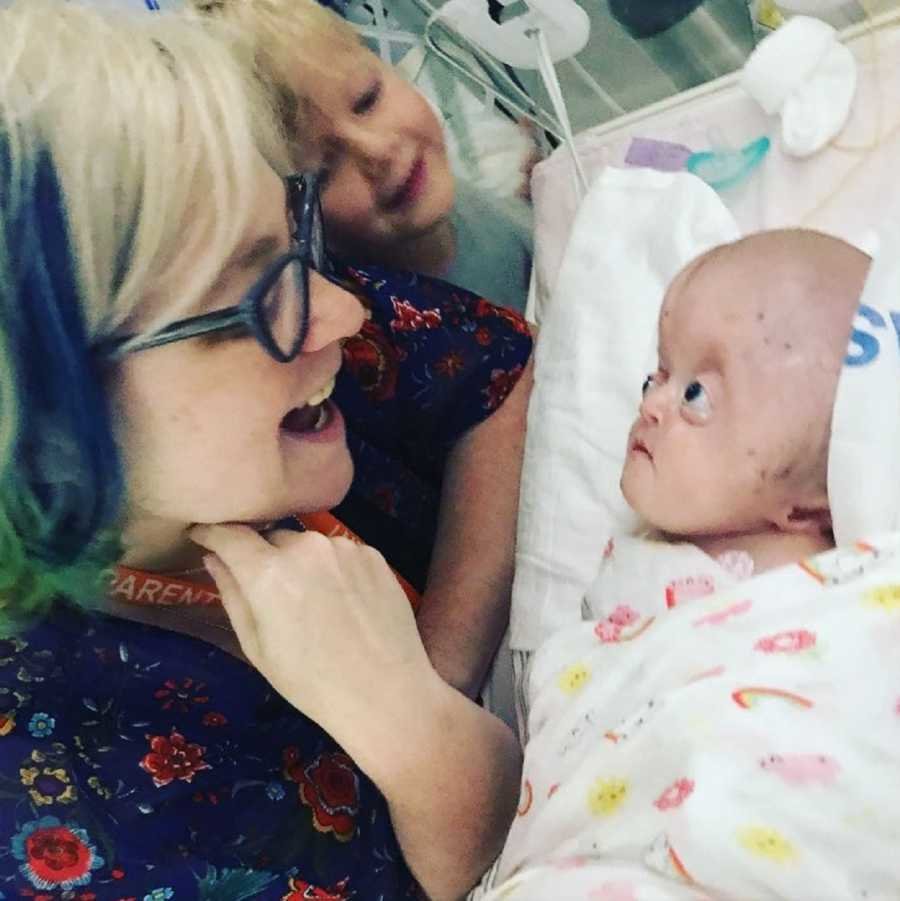
The days were long, stressful, and scary. We had to make decisions daily about her care. We had to discuss DNR paperwork and quality versus quantity. We celebrated, and we cried. We fought, and we pleaded.
Eventually, we got to go home which was scary and stressful in all new ways.
Emmy is now 18 months old. She’s had probably 20 surgical/medical procedures.
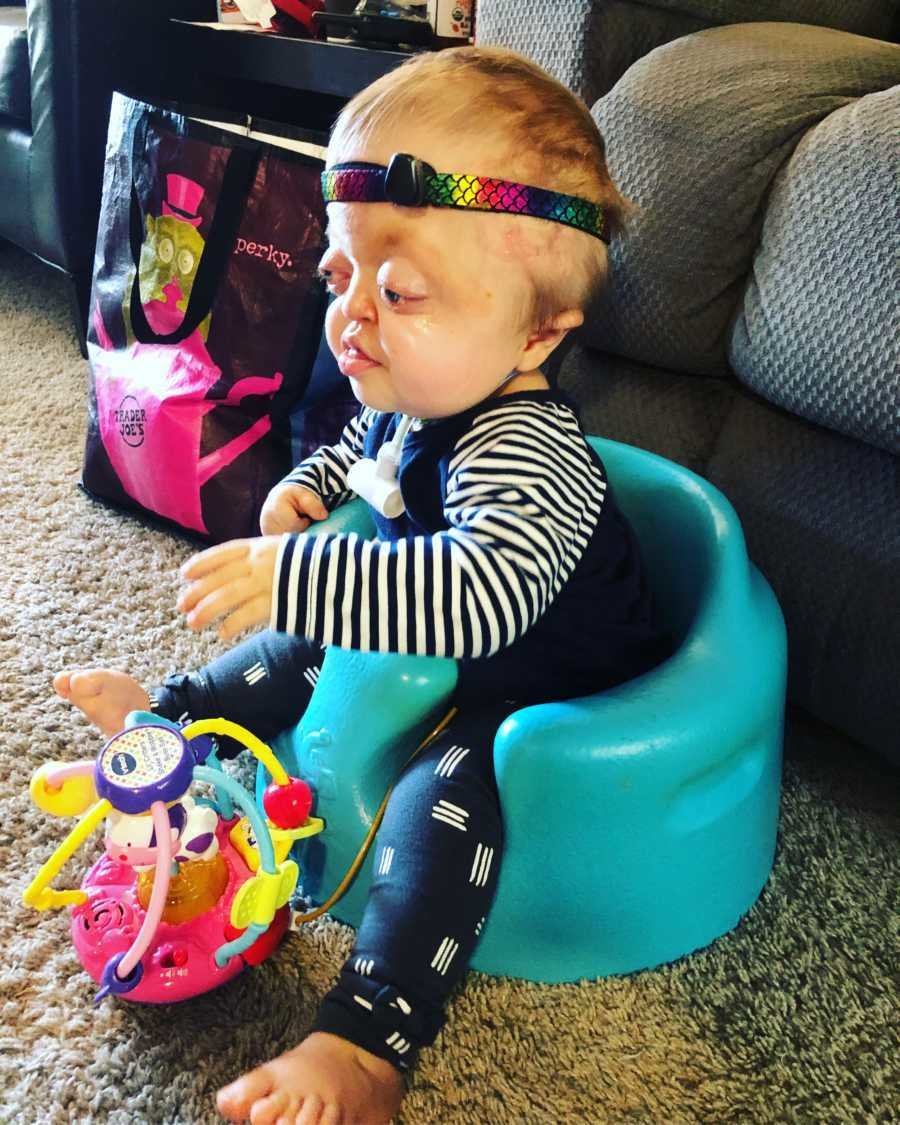
She had an intestinal malrotation fixed, a g-tube placed, a tracheostomy, and three skull surgeries to help her brain develop. She’s got several more in her future, including a major facial surgery to expand her midface in the summer.
She’s doing remarkably well these days ... probably more so than anyone ever expected.
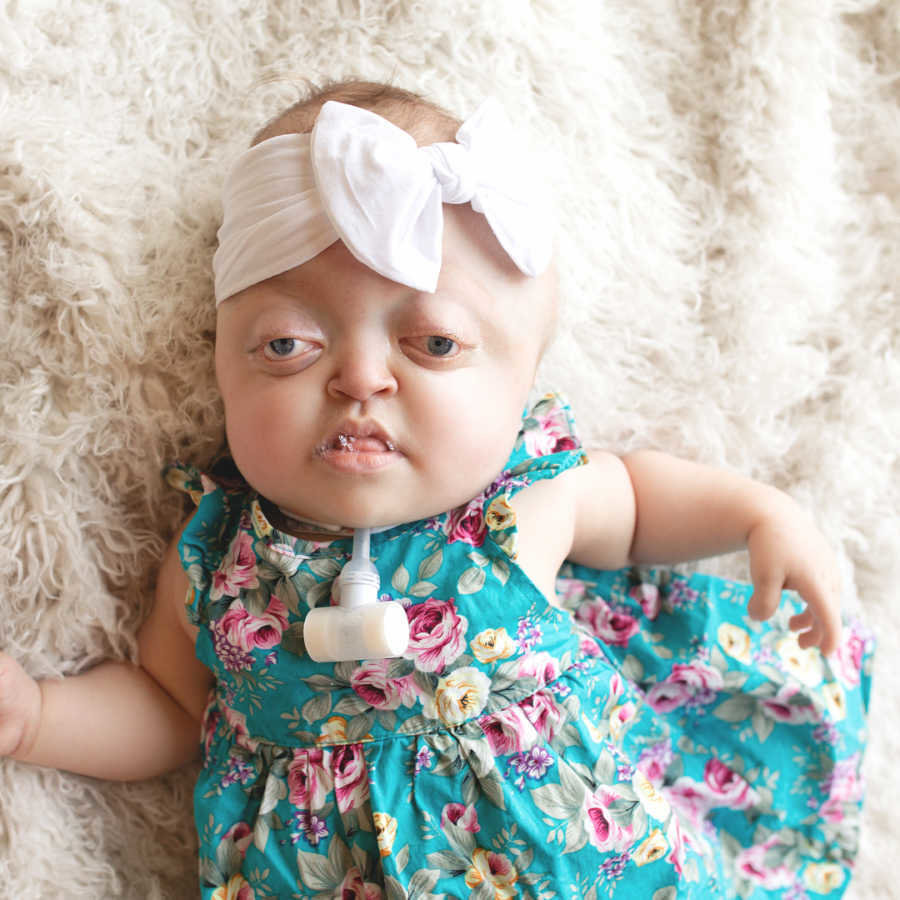
We’ve had hospital stays and emergencies, we’ve had PICC lines and long nights of worry, but she smiles through it all. She continues to grow and develop, albeit at a slower pace than other kids her age, but she shows a determination that is unbelievable. She’s got parents that love her, a brother that thinks she hangs the moon, grandparents that encourage her, and a team of doctors, nurses, and therapists that give her every tool possible to thrive.
We know that Emmy will always look different and that she will face cowards and bullies in her lifetime.
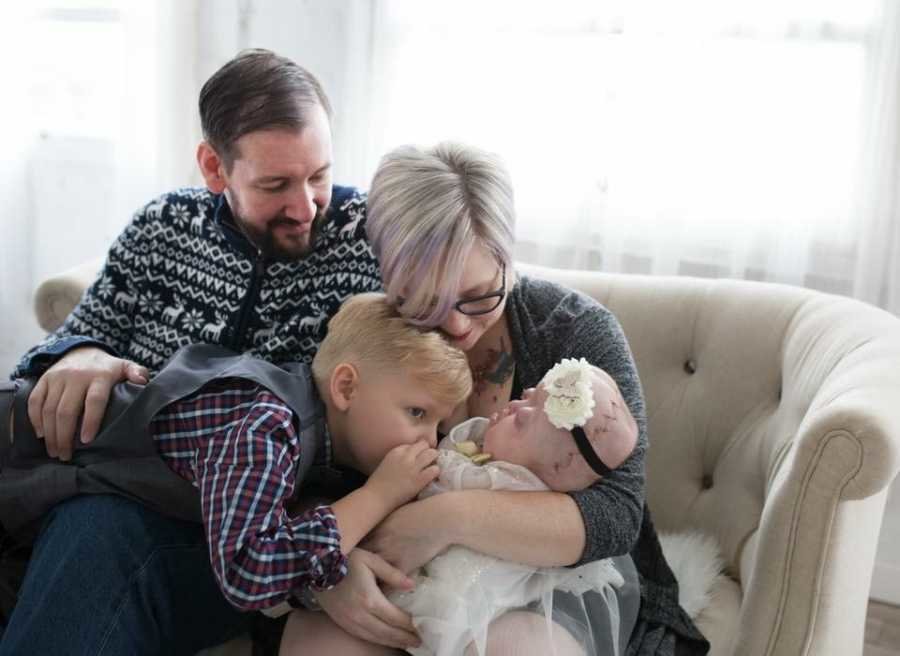
But our goal is to always show her how loved she truly is and empower her to be everything she wants to be. We hope that sharing her story will pave the way for her in the future to get less stares and more "Let’s play."
This post was written by Amanda Schuster and reprinted with permission.



